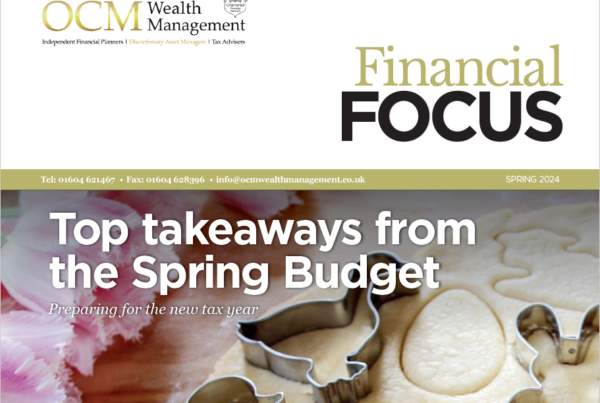Navigating Short-Term Market Volatility
At the start of the week, as investor sentiment shifted on the back of rising covid-19 cases and uncertainty over the inflation outlook, we communicated our thoughts on the latest bout of short-term volatility, reiterating our positive medium-term outlook.
On Monday, the arrival of the UK’s ‘Freedom Day’ caused investors to consider whether this type of policy decision would be a positive long-term push towards heard immunity or a public policy mishap for the UK and other nations that followed suit. Compared to the data from the previous week, the UK has seen the 7-day average covid-19 case rate rise from 34,600 to over 47,000, an increase of 35%. Globally, the Covid-19 case rate has risen 12% over the same period. As more countries relax their lockdown restrictions, investors are expecting these numbers to accelerate in the coming weeks and months. Despite these data flows, a key factor that is bringing comfort to our outlook and the outlook of other long-term investors is the dissociation between rising Covid-19 cases and Covid-related deaths, which have remained muted in recent weeks. Besides this data, investors are also monitoring the progress of inflation globally. In particular, the US inflation rate has surpassed expectations in April, May, and June, having reached its peak annual inflation rate of 5.4% in June’s data release. Given the latest data releases, investors have begun to factor in slightly stickier price pressures than the Fed have so far forecasted, which has had important implications for risk sentiment and asset allocation.
This rise in risk-averse sentiment caused global equity indices to experience sharp declines on Monday. The UK’s 100 largest companies and the US’ 500 largest companies fell, on average, 2.40% and 1.56% respectively on Monday, with indices across the globe experiencing similar falls. In Monday’s update, we noted that this would likely be a temporary reaction to the macroeconomic backdrop before recovering, as investors would consider the market reaction to be overdone in response to a largely unchanged economic outlook. This scenario materialised from Tuesday onwards, as all of the equity indices in the table below are now higher than they were Monday. This suggests that investors saw an opportunity to buy the dip in share prices, encouraged by the strong July corporate earnings season so far.
After Monday’s declines, the improvement in equity markets observed in recent trading sessions is welcoming, reassuring financial markets that investors continue to hold a positive outlook for risk assets going forward. This is not to say the short-term volatility is over, and we expect this level of short-term volatility to continue as we transition through the economic recovery. In our view, although markets remain susceptible to temporary changes in investor sentiment, we see global vaccination rates, the growing dissociation between Covid-19 cases and Covid-related deaths, as well as the strong economic outlook as key drivers maintaining the positive momentum that we have witnessed for much of the year to date.
As is expected during a period of risk-off investor sentiment, non-equity sectors that are typically less risky than equities have largely performed positively this week, with the inflation-adjusted index-linked bonds performing the strongest. Looking at the OBI portfolio dataset, the portfolio performance on the whole has remained neutral over the week as they successfully navigated the elevated volatility. OBI 3 to 5 all gained in the period due to their higher non-equity and lower equity weightings relative to OBI 6 to 8. OBI 6 to 8, which currently hold between 56% and 80% equity, encountered slightly more challenging conditions given the recent movements in markets, albeit they typically performed better than the equity indices monitored. The benefits of portfolio diversification are evident during events like these, having seen both high growth and defensive multi-asset funds contribute positively to the dataset below.
Repeating what was highlighted at the beginning of the week, we never like to see negative intraday market movements however, what we are seeing is completely normal market behaviour, and our balanced portfolio allocation aims to mitigate movements such as these. Just as it has done over the past couple of days, we expect the positive momentum to continue to drive markets higher as we transition throughout the year. There will be bumps along the way, however our positive outlook remains unchanged.
Past performance cannot be used as a guide to future performance and the value of your investment will fall as well as rise in value. You may not get back all of your investment and the final value of your investment will depend on the performance of your portfolio. The actual performance of an individual client’s portfolio may differ due to different funds being used and being restricted in relation to certain asset allocations. Performance figures quoted include fund manager charges but exclude adviser, discretionary, custodian and switch charges and trading spreads. Unless stated, income is reinvested into the portfolio. The information contained in in this document is for information purposes only. It does not constitute advice or a recommendation or an offer or solicitation for investment.
Key Events We Are Watching This Week:
- Friday 23rd: EU GDP Growth and Inflation Rates.
- Thursday 29th: EU Consumer Sentiment and Confidence Indicators, US GDP Growth Rate.
This Day in History
On this day, in 1933, American aviator Wiley Post becomes the first person to fly solo around the Earth.
Thank you for reading, have a great week!
Jason, Gina & Ben

